The story of one of Lancaster's most decorated sons


On Quernmore Park Lancaster one of the roads is named Macdonald Way; the road sign explains it is in honour of Lieutenant Macdonald MC and two bars.
As part of my ongoing researches I recently met with Ronald’s family and I am now able to present the life of this extraordinary soldier and public servant.
Advertisement
Hide AdAdvertisement
Hide AdRonald was born in Lancaster on February 9, 1895 and was baptised at Scotforth.
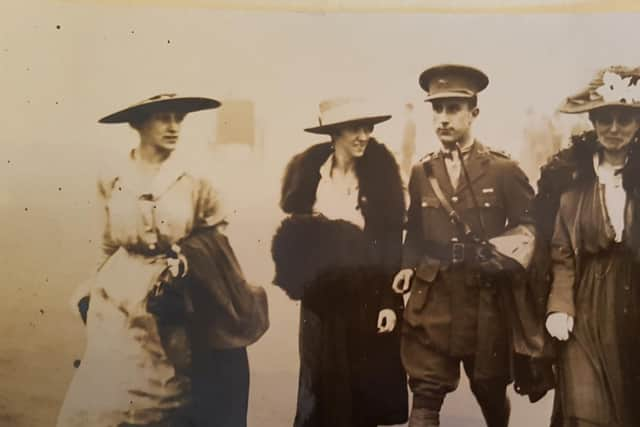

His parents were Albert, a clerk who was employed at the Royal Albert from 1883, and Janet, who then resided at 19 Clougha View.
By 1901 the Macdonalds lived at 13 Fern Bank Lancaster, and Albert was the steward and storekeeper at the Royal Albert. In 1902 Ronald was joined by a sister Hilda.
Ronald attended the Friends School in Lancaster, and Clarks College in London. He then graduated from London University and gained honours in the Cambridge senior local examinations.
Advertisement
Hide AdAdvertisement
Hide AdIn June 1914 he passed his examination for appointment to the Office of the Crown Agents in the colonies. However, in August 1914 the outbreak of World War I provided a rude interruption to his plans.
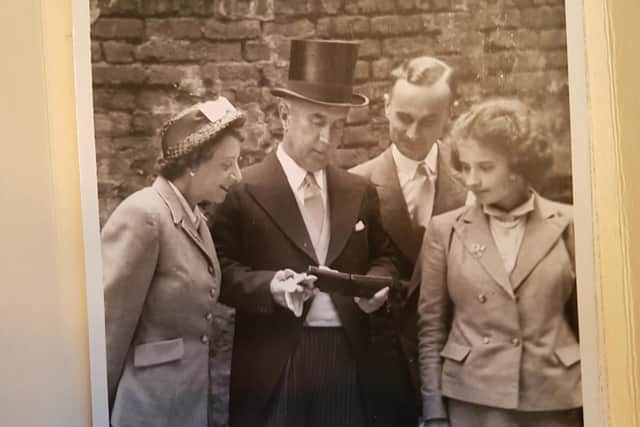

Ronald joined the army, serving first as a private (5702) in the 2/10th Liverpool Scottish (a famous Territorial Force unit) from September 1915, spending time in Liverpool and Blackpool.
His obvious potential took him to 6th Officer Cadet Training Battalion at Balliol College, Oxford, from mid-1916 and he was successful in being “poached” by the Kings Own while there.
He was duly commissioned in the Territorial Force on September 13, 1916 as a second lieutenant and was then sent to join his holding unit (5th Reserve Battalion) at Oswestry. He was soon sent to France to join the 1/5th Kings Own, arriving on 14th October 1916. On arrival Ronald was acquainted with his duties as a platoon commander and became a specialist in “bombing” (the use of grenades).
Advertisement
Hide AdAdvertisement
Hide AdHe received a slight wound on December 17, 1916 but remained on duty.
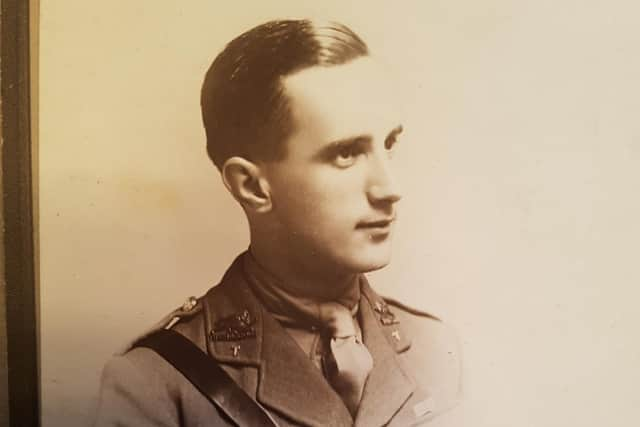

Ronald soon established himself as a born leader and in March 1917 he was awarded the Military Cross.
He then won two bars (a bar is another award of the same medal) and the circumstances are best described in the citations.
He was one of only 170 officers to win the Military Cross three times in World War I.
Advertisement
Hide AdAdvertisement
Hide AdLondon Gazette April 26, 1917, For operations in the Railway Wood sector, Ypres, March 9, 1917: For conspicuous gallantry and devotion to duty. About 06.45 on March 9 the enemy exploded a mine near Railway wood.
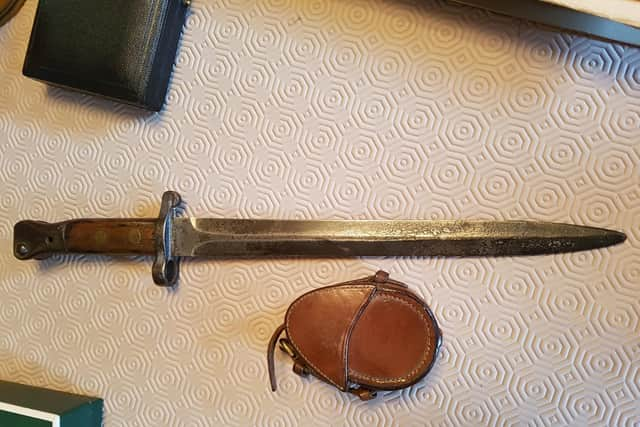

He collected a party and led them out to occupy an enemy mine crater. When later he found that the officer commanding the crater consolidating party was wounded he took command and by his energy and resource for ten hours ensured the consolidation of the crater.
When the enemy attempted to bomb the consolidating party he at once led a strong counter offensive and silenced the enemy.
London Gazette September 26, 1917: For conspicuous gallantry and devotion to duty in front of Weltje July 31 July - August 2, 1917. He went continually to and fro from Brigade Headquarters under very heavy shell fire, bringing most valuable intelligence, and although blown down several times by the shelling which killed and wounded a number of men, he stayed by them, tied up their wounds, and carried several of them to aid posts. His conduct was beyond all praise.
Advertisement
Hide AdAdvertisement
Hide AdLondon Gazette September 16, 1918: For conspicuous gallantry and devotion to duty throughout a week’s fighting (from April 9th-15th 1918). He repeatedly carried out personal reconnaissances of the front line, returning with valuable information of our own and the enemy’s dispositions.
When the enemy broke the line on the 10 April, he led a counterattack with great dash, and largely owing to his leadership the line was restored. As a staff (intelligence) officer in action he was invaluable.
The awards were naturally reported by the Lancaster Guardian at the time, and Ronald was invited to Buckingham palace for the award of his second and third bars, accompanied by his proud parents and Hilda.
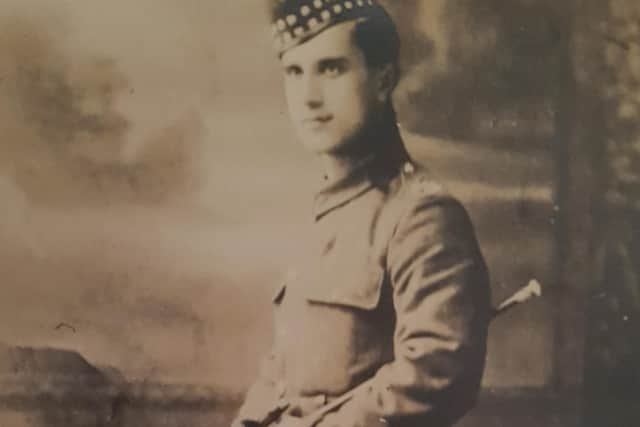

In June 1917 Ronald was appointed as intelligence officer to the 1/5th, and in December that year joined the staff of the 166th Infantry brigade- of which the 1/5th was a part. Ronald was promoted to lieutenant on March 28, 1918.
Advertisement
Hide AdAdvertisement
Hide AdRonald left the 166th brigade on demobilisation on December 30, 1918 and was disembodied (or discharged from the TF) on January 14, 1919 as a Lieutenant. He married his first wife Amy Elizabeth Stutz from Hackney on August 11, 1920.
The couple were married in St Paul’s Church, Scotforth, Lancaster. Back in civilian life Ronald then resumed his career in the Crown Agents for the colonies, being in London initially and then Malaya from August 1924 to 1935 in the audit office.
Ronald also continued his part time military career joining the MSVR (Malaya States Volunteer Regiment) as a second lieutenant on his arrival in 1924 and was later promoted to captain, commanding “A” company, from September 1931.
Ronald was later the adjutant of the 2nd Selangor Battalion of the MSVR, based in Kuala Lumpur.
Advertisement
Hide AdAdvertisement
Hide AdThe MSVR was a European-recruited equivalent of the territorial army in Malaya.
He was recommended for promotion to major and this was later granted. While still in Malaya he was awarded the King George V 1935 Silver Jubilee Medal. He then left Malaya around 1936 to go to Palestine working in the colonial audit office.
In 1937 he was awarded the King George VI Coronation Medal and was stated by the Guardian to be on leave in Lancaster.
The family are known to be in Palestine in May 1939.
In September 1939 Ronald is shown as being back in Lancaster at Fern Bank.
Advertisement
Hide AdAdvertisement
Hide AdHe was then posted to West Africa and appointed a major in the Sierra Leone Defence Force from May 1940 while working in the Audit office. He was awarded the OBE in the New Year’s Honours for 1943 for services while in Sierra Leone.
In 1945 he was promoted colonel and served in Malaya and in Singapore as inspector general of accounts in the British Military administration. On the return of civil government, he was director of audit for Malaya and Singapore.
Ronald also later served as financial secretary in the new state of Singapore from 1946 and later as organisation and methods adviser to Sarawak, North Borneo and Brunei.
Ronald was awarded the CBE in July 1952 and it is believed to be the first CBE of the new Queen Elizabeth’s reign. At this time he was living at 18 Cleveleys Avenue, Scale Hall, Lancaster.
Advertisement
Hide AdAdvertisement
Hide AdFrom 1957-64 he served on hospital boards in the Lancashire area.
He also attended the civil defence instructors course in 1958 and Ronald was also president of the Friends School Old Boys Association.
Ronald married Jean Henderson in 1970 following the death of Amy in 1967.
Ronald and Amy had two children: a son, Ian born in December 1921 and a daughter, Rosemary, born in May 1939 in Palestine.
Advertisement
Hide AdAdvertisement
Hide AdRonald died at Cleveleys Avenue on October 22, 1983. His funeral was held at the Priory Church on October 26.
Ronald’s medals are held at the Regimental Museum at Lancaster and can be viewed there in the main display galleries. Thanks must go to Peter, Ronald’s grandson, for access to his papers and memorabilia.
The Lancaster Guardian published an article in July 2016 about Lt Ronald Macdonald and two other highly decorated World War I heroes.
Here is an extract from the article: Three of Lancaster’s most highly decorated World War I heroes have been honoured by housebuilders Barratt Manchester, who have named three roads at their Quernmore Park development in memory of their lives and military bravery.
Advertisement
Hide AdAdvertisement
Hide AdThe housebuilder officially unveiled the road names to coincide with Armed Forces Day, inviting members of the Lancaster Royal British Legion and Air Cadets to join them in celebrating the lives of 2nd Lieutenant Ronald Macdonald MC, Private Reginald Sydney Dennison MM and Captain Albert Ellwood MC.
The three distinguished servicemen belonged to Lancaster’s Battalion of the King’s Own Royal Regiment, which fought throughout the First World War in France and Flanders, the Balkans, and the Middle East, as did other regiments.
However, its casualties in France and Flanders per battalion were higher than most of its neighbouring English County Regiments.
Barratt Manchester sales manager Alan Watt said: “It’s been fascinating finding out about the lives of these heroic men, who marched from their barracks at the former Wagon Works on Caton Road to the Castle railway station on the first leg of their journey to France. We were delighted to welcome representatives from the Lancaster Royal British Legion and Air Cadets to the site, who helped us to celebrate the new road names on a very important day of the military calendar.